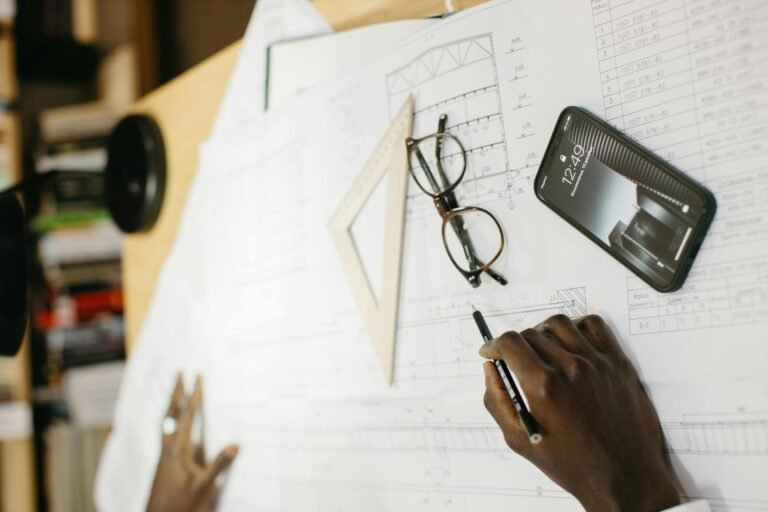How Long Does a Home Inspection Take? What to Know When Buying a Home
A ordinary home inspection takes approximately 2 to 4 hours to finish. This length can range primarily based at the asset’s size, age, and circumstance.
Embarking on the journey of buying a domestic is an thrilling project, and a radical home inspection is a critical step on this system. It gives customers a comprehensive evaluation of the house’s state, highlighting any potential problems that might require destiny investment.
Understanding the time dedication for a home inspection is important for scheduling and peace of thoughts. Buyers need to be organized to set aside numerous hours, ensuring the inspector can perform an in depth and unhurried exam. This time body additionally lets in domestic customers to be gift for the duration of the inspection, that is particularly advocated as it offers an opportunity to ask questions and advantage insights without delay from the inspector. Remember, the goal of a domestic inspection is to secure your funding, making it an critical part of buying a domestic.
Timeframe of a Home Inspection
An critical a part of shopping for a domestic is the house inspection. This system gives shoppers critical facts approximately the condition of the property. Understanding the timeline of a domestic inspection helps customers plan in advance.
Factors Affecting Duration
Several factors decide how lengthy a domestic inspection will take:
- Size of the home: Larger homes need more time.
- Age of the property: Older homes may require a closer look.
- Condition of the home: Homes with more issues take longer to inspect.
- Additional services: Tests for mold or radon add to the duration.
- Inspector’s approach: Some inspectors are more thorough than others.
Typical Duration Range
Most home inspections fall within a certain time range:
| Home Size | Duration |
|---|---|
| Small Homes | 1-2 hours |
| Medium Homes | 2-3 hours |
| Large Homes | 3+ hours |
Average inspections take about 2 to 3 hours. Buyers should plan accordingly. Your real estate agent can provide more accurate time estimates.
Pre-inspection Considerations
Before buying a home, getting it checked is key. This part talks about what to do before the check. We focus on setting the check time and making the house ready.
Scheduling The Inspection
Choosing the right time for a home inspection is crucial. Aim for a slot when you can be there. This lets you see and learn about any issues first-hand. It usually takes 2 to 4 hours, but big homes need more time.
- Ask the inspector about their availability early.
- Check your calendar to match the inspector’s time.
- Remember, early morning or late afternoon slots might mean less rush.
Preparing The Home
Getting the house ready helps the inspector do a thorough check. A well-prepared house shows problems more clearly.
- Clear access to areas like the basement, attic, and utility closets.
- Ensure all utilities are connected. The inspector needs to test things like the stove and lights.
- Fix minor issues, like changing burnt-out light bulbs. This can speed up the inspection.
Remember, a clean and accessible house makes the inspection smoother. This leads to a more accurate report. So, take the time to prep your home well!
During The Inspection
Diving into the heart of a home inspection reveals much. It’s a critical step in your home-buying journey. An inspector scrutinizes the property. They ensure everything is safe and sound. Let’s explore what happens during this thorough examination.
Key Areas Of Focus
The inspector has a checklist. They will look at several key areas:
- Structural elements: Walls, floors, ceilings, and the roof’s condition.
- Exterior evaluation: Siding, walkways, and drainage.
- Roof and attic: Shingles, vents, and insulation.
- Plumbing: Pipes, drains, water heaters, and faucets.
- Systems and components: Heating, air conditioning, and electrical systems.
- Appliances: Built-in and freestanding appliances.
- Garage: Doors, floors, and walls.
Inspector’s Process
The inspector follows a detailed process:
- They arrive on time, with tools ready.
- Every room is checked, from top to bottom.
- Photos document the home’s condition.
- Major systems are tested for functionality.
- Details are noted, highlighting issues.
- Questions are answered, offering clarity.
- A comprehensive report is prepared.
Post-inspection Dynamics
After a home inspection, the process enters a critical phase. This stage is crucial for buyers and sellers alike. Buyers need to understand the inspection findings thoroughly. Sellers prepare for possible negotiations or repairs. Here’s what to expect once the inspection wraps up.
Understanding The Report
Inspection reports can be extensive. They highlight a home’s condition, noting any issues. Reports break down findings by systems, like electrical and plumbing. They also list safety concerns and potential maintenance needs.
- Detail on structure, systems, and components
- Notes on any defects or malfunctions
- Photos for visual reference
- Recommendations for repairs or replacements
Buyers should review each section. Ask inspectors questions for clarity.
Negotiating Repairs
Negotiation follows the inspection. Buyers might request sellers to make repairs. Alternatively, buyers may ask for a price reduction. This is to cover the cost of future repairs.
| Repair Type | Common Requests |
|---|---|
| Major Systems | Roof, HVAC, foundation |
| Safety Issues | Electrical wiring, smoke detectors |
| Functionality | Windows, doors, plumbing |
Discussions may lead to an agreement. This ensures a fair deal for both parties.
Types Of Home Inspections
Before buying a home, understanding the types of home inspections is key. These checks ensure a house is safe and a sound investment.
Standard Vs. Specialized Inspections
Standard home inspections cover the basics. Inspectors look at the structure, roof, and systems like plumbing and electrical. They check heating and cooling systems too. This general review reveals visible issues.
Specialized inspections dig deeper. They may focus on termites, mold, or radon. Experts use special tools for these. They might check sewers or scan for thermal leaks. These inspections are more detailed.
When To Consider Additional Inspections
- Old homes may need more checks. Age can hide problems.
- Signs of trouble like water stains may prompt further inspection.
- High-risk areas call for specific tests. Think floods or earthquakes.
- Peace of mind often justifies extra inspections. Buyers feel assured.

Impact Of Home Size And Age
Understanding the impact of a home’s size and age is crucial. These factors heavily influence the duration of a home inspection. Buyers need to account for these variables. They can affect the inspection timeline significantly.
Size Considerations
Home size directly affects inspection time. Larger homes have more areas to assess. This means more time spent during inspection. Smaller homes usually require less time. Inspectors look at each room, system, and structure. The following points outline size impacts:
- More rooms mean more time
- Additional features like pools or sheds extend duration
- Garages and outbuildings are also considered
Older Homes And Additional Time
Older homes often necessitate longer inspections. The reason is simple: aging structures pose more potential issues. Inspectors must be thorough. They need to identify any problems related to age. Consider the following:
- Outdated electrical systems require careful examination
- Old plumbing can hide leaks and decay
- Foundation issues are more common in older homes
Each historical layer of the home reveals more about its condition. Inspectors take their time to ensure a comprehensive assessment.
Buyer’s Role In The Process
Buying a home is a big step. Buyers play a key role in the home inspection process. This part is crucial for making a smart decision. Let’s dive into what buyers should do during the inspection.
Attending The Inspection
Being there is important. You see the house through an expert’s eyes. It’s a chance to learn about your future home. Here’s why you should attend:
- Understand the property better.
- Witness potential issues firsthand.
- Get real-time explanations from the inspector.
Questions To Ask
Asking questions is vital. It helps you grasp the home’s condition. Not sure what to ask? Start with these:
- What is the biggest issue you found?
- How serious are these problems?
- Can you show me the problem areas?
- What should I fix first?
Remember, no question is too small. Understanding every detail helps you make a wise choice.
Choosing The Right Inspector
Choosing the right inspector is a critical step in buying a domestic. A thorough domestic inspection can monitor hidden troubles and prevent cash. Here’s how to select a qualified inspector.
Certifications and Experience
Your inspector ought to have a sturdy heritage. Look for certifications from respectable agencies. These encompass ASHI, InterNACHI, and NAHI. Ensure they’ve insurance and a valid license.
- ASHI – American Society of Home Inspectors
- InterNACHI – International Association of Certified Home Inspectors
- NAHI – National Association of Home Inspectors
Check their experience level. More years often mean more expertise. Ask for references and read reviews. Past client satisfaction is a good success indicator.
What To Look For In A Report
A quality report is detailed and clear. It should be easy to read. Photos and descriptions of each issue are essential. The report must cover all major home systems.
| System | Details Expected |
|---|---|
| Roof | Condition, age, damages |
| Electrical | Wiring safety, panel condition |
| Plumbing | Leaks, water pressure |
| HVAC | System functionality, maintenance |
Ensure the inspector covers all areas. This includes the basement, attic, and exterior. They should also check for mold and pests. The report should list potential problems and suggest solutions.
Common Misconceptions
Common Misconceptions about home inspections can confuse buyers.
Many think it’s a quick process or covers every inch of the property.
Let’s clear up these myths with facts.
Instant Results Expectation
Some believe home inspection results come out instantly. This is not true.
- Inspections take time.
- Expect hours, not minutes.
- Complex homes need more time.
Patiently wait for thorough results.
Scope Of The Inspection
Others think inspectors check every single detail.
Inspectors focus on safety and function, not cosmetics.
- Structure, electrical, and plumbing get priority.
- Minor cracks or paint issues may not be noted.
- Specialized inspections are separate.
Understand the limits of a standard inspection.
Dealing With Delays
Understanding potential delays is crucial when scheduling a home inspection. Let’s explore common factors that can extend the timeline.
Weather-related Issues
Weather can impact the duration of a home inspection. Inspectors face challenges during heavy rain, snow, or extreme temperatures. These conditions can lead to rescheduling or additional time for a safe and thorough inspection. Safety remains the top priority for both the inspector and the home.
- Heavy Rain: May prevent roof inspection.
- Snow: Could cover outdoor areas, delaying inspection.
- Extreme Heat/Cold: Might limit the duration of the inspector’s work.
Unforeseen Home Issues
Unexpected problems in a home can cause delays. Inspectors may discover issues that require a deeper look. This can extend the inspection time significantly. Common unforeseen issues include:
| Issue | Impact |
|---|---|
| Structural Damage | Needs detailed assessment |
| Pest Infestation | Requires specialized evaluation |
| Old Wiring | Demands careful review |
| Water Damage | Leads to further investigation |
Frequently Asked Questions (FAQ)
Who Attends the Home Inspection in Texas?
Typically, the buyer and their actual estate agent attend the house inspection in Texas. Sellers may also be present, at the side of the inspector.
How Long Does A Home Inspection Take In Texas?
A typical home inspection in Texas takes about 2 to 4 hours, depending on the property’s size and condition.
How Much Is A Home Inspection In Texas?
The fee of a domestic inspection in Texas typically tiers from $250 to $six hundred, depending at the property’s size and vicinity.
Conclusion
Understanding the length of a domestic inspection is vital for a clean domestic-shopping for journey. Typically, this system spans some hours, however it is the peace of thoughts that certainly counts.
Remember, a radical inspection can pave the way for a assured investment to your future home.






